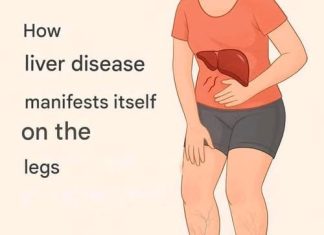Bryan Johnson, a prominent figure in the biohacking community, has recently found himself at the center of a heated debate following critical remarks from Dr. Cyriac Abby Philips, known online as “The Liver Doc.” Dr. Philips accused Johnson of being a fraudster comparable to Elizabeth Holmes, the infamous founder of Theranos, who was convicted of fraud through her health technology company. This controversy has ignited discussions about the efficacy and safety of Johnson’s health practices and the products he promotes.

Johnson has gained widespread attention for his extreme efforts to extend his lifespan, often encapsulated in his mantra, “don’t die.” His regimen includes a strict diet, rigorous exercise routines, and the consumption of various supplements aimed at promoting longevity. These practices have garnered a substantial following on social media, where Johnson shares insights into his daily routines and the purported benefits of his approach.
Dr. Philips, a hepatologist with a significant online presence, has expressed skepticism regarding Johnson’s methods. On March 30, 2025, Dr. Philips took to social media to voice his concerns, stating, “It is terrifying that people do not see Bryan Johnson as actually a well-evolved masculine form of fraudsters Elizabeth Holmes and Belle Gibson, selling both expensive and utterly useless investigations and peddling potentially dangerous snake oil supplements in the name of BLUEPRINT.”
In response, Johnson defended his Blueprint brand, emphasizing that the products offered contain “extra virgin olive oil, proteins, nuts, and nutrients which have independent and robust scientific evidence.” He further asserted that these products are third-party tested, with certificates of analysis publicly available, and are affordably priced.
One of the flagship products of Johnson’s Blueprint brand is the “Blueprint Longevity Mix,” which claims to promote better sleep, boost energy levels, and reduce stress. According to the Blueprint website, this mix contains 13 health actives, including CaAKG, Creatine Monohydrate, Glycine, L-Theanine, reduced Glutathione, Calcium, and Magnesium. However, Dr. Philips has questioned the scientific validity of these claims, asking, “Where is the proof that this mix actually increases life expectancy/longevity? Is there a preclinical study in mice or primates or pigs? We will get to human studies later. At least proof of concept studies?”
The exchange between Johnson and Dr. Philips has sparked a broader conversation about the regulation and marketing of health supplements. The supplement industry has long been scrutinized for the lack of stringent oversight compared to pharmaceutical drugs. This regulatory gap allows for the promotion of products with claims that may not be substantiated by rigorous scientific research, raising concerns about consumer safety and the potential for misinformation.
Critics argue that individuals like Johnson, who leverage their influence to promote health products, have a responsibility to ensure that their claims are backed by credible scientific evidence. The comparison to Elizabeth Holmes underscores the potential dangers of promoting health interventions without adequate validation, as seen in the Theranos scandal, where unproven technology led to significant harm and legal repercussions.
Supporters of Johnson contend that biohacking represents a frontier in personal health optimization, emphasizing individual experimentation and the pursuit of enhanced well-being. They argue that traditional scientific research can be slow to adapt to emerging health practices and that self-experimentation, when conducted responsibly, can yield valuable insights.

This debate highlights the tension between innovation in health practices and the need for scientific validation. While the pursuit of longevity and improved health is a commendable goal, it is essential that claims made by health influencers are grounded in robust evidence to prevent the dissemination of potentially harmful misinformation.
As of now, Johnson has not provided detailed responses to Dr. Philips’ specific inquiries regarding the clinical evidence supporting his products. This ongoing discourse serves as a reminder of the importance of critical evaluation and scientific rigor in the promotion of health and wellness products. Consumers are encouraged to approach such products with caution, seeking information from reputable sources and consulting healthcare professionals before making decisions that could impact their health.
In conclusion, the controversy surrounding Bryan Johnson and Dr. Cyriac Abby Philips underscores the complexities and responsibilities inherent in the promotion of health and wellness products. It highlights the need for transparency, scientific validation, and ethical considerations in the burgeoning field of biohacking and longevity research.

















